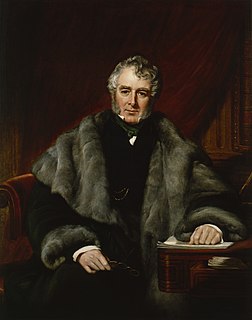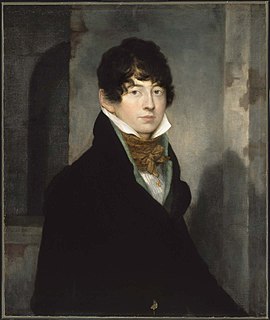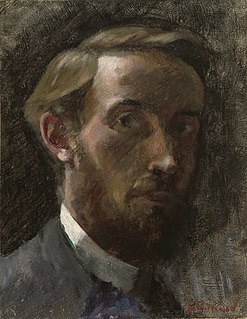A Quote by William Lamb, 2nd Viscount Melbourne
It wounds a man less to confess that he has failed in any pursuit through idleness, neglect, the love of pleasure, etc., etc., which are his own faults, than through incapacity and unfitness, which are the faults of his nature.
Related Quotes
It has always seemed to me that if one falls in love with any gentleman one becomes instantly blind to his faults.But I am not blind to your faults, and I do not think that everything you do or say is right! Only—Is it being—not very comfortable—and cross—and not quite happy, when you aren’t there?” “That, my darling,” said his lordship,taking her ruthlessly into his arms,“is exactly what it s!” “Oh—!” Frederica gasped, as she emerged from an embrace which threatened to suffocate her. “Now I know! I am in love!
Joy is not the same as pleasure or happiness. A wicked and evil man may have pleasure, while any ordinary mortal is capable of being happy. Pleasure generally comes from things, and always through the senses; happiness comes from humans through fellowship. Joy comes from loving God and neighbor. Pleasure is quick and violent, like a flash of lightning. Joy is steady and abiding, like a fixed star. Pleasure depends on external circumstances, such as money, food, travel, etc. Joy is independent of them, for it comes from a good conscience and love of God.
John Cobb is saying that perhaps we are beginning to see that now as our greed goes completely out of control and everything is seen through money, through corporate power, etc., etc. We know it well. He asked the question, What will be the holocaust that takes us to the next era? - which he describes as "Earthism."
Samuel Beckett is the person that I read the most of - certainly the person whose books I own the most of. Probably 800 or 900, maybe 1,000 books of just Samuel Beckett. By him, about him, in different languages, etc. etc. Notebooks of his, letters of his that I own, personal letters - not to me, but I bought a bunch of correspondence of his. I love his humor, and I'm always blown away by his syntax and his ideas. So I keep reading those.
It is in virtue of his own desires and curiosities that any man continues to exist with even patience, that he is charmed by the look of things and people, and that he wakens every morning with a renewed appetite for work and pleasure. Desire and curiosity are the two eyes through which he sees the world in the most enchanted colours...and the man may squander his estate and come to beggary, but if he keeps these two amulets he is still rich in the possibilities of pleasure.

































